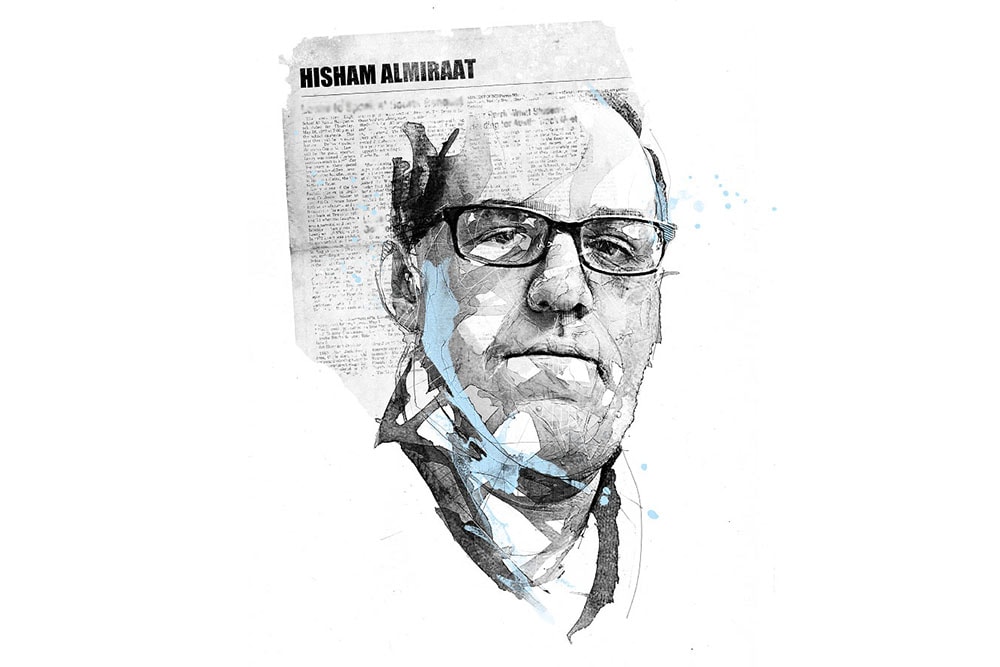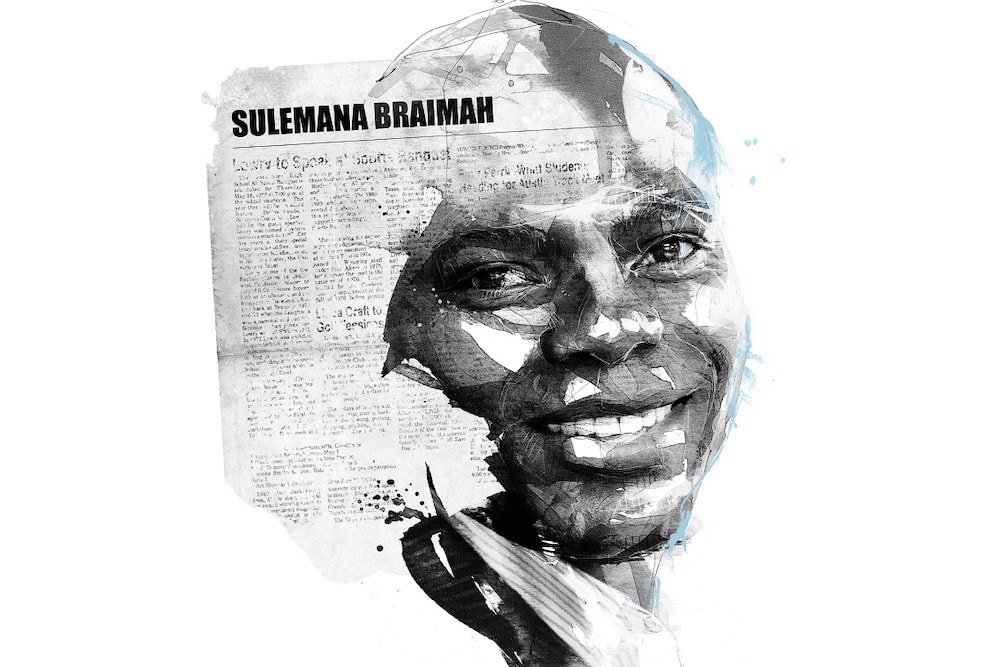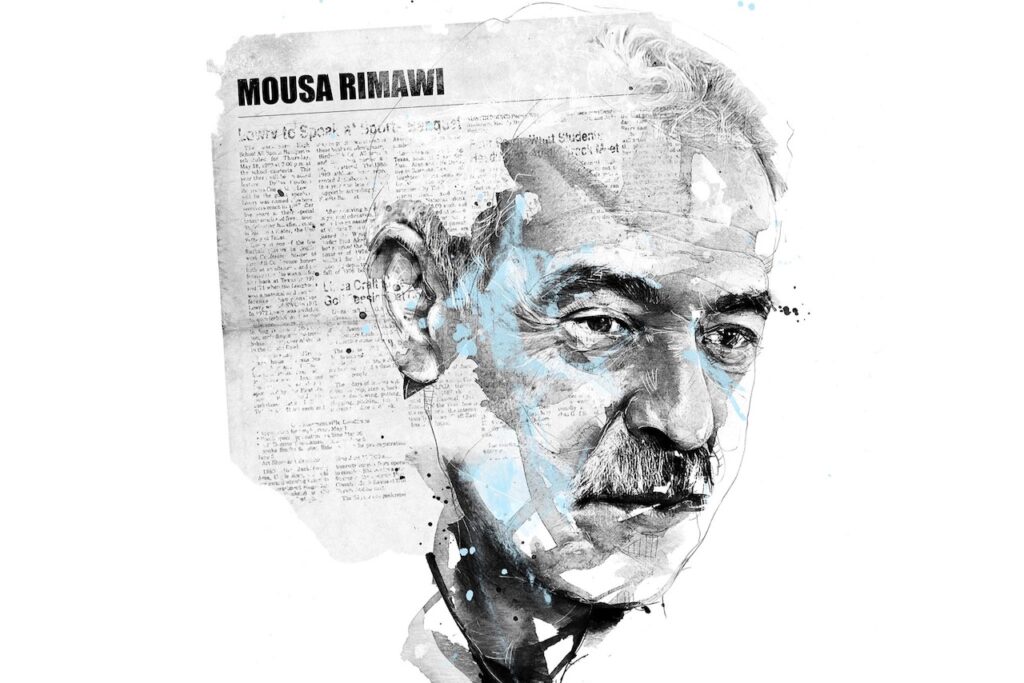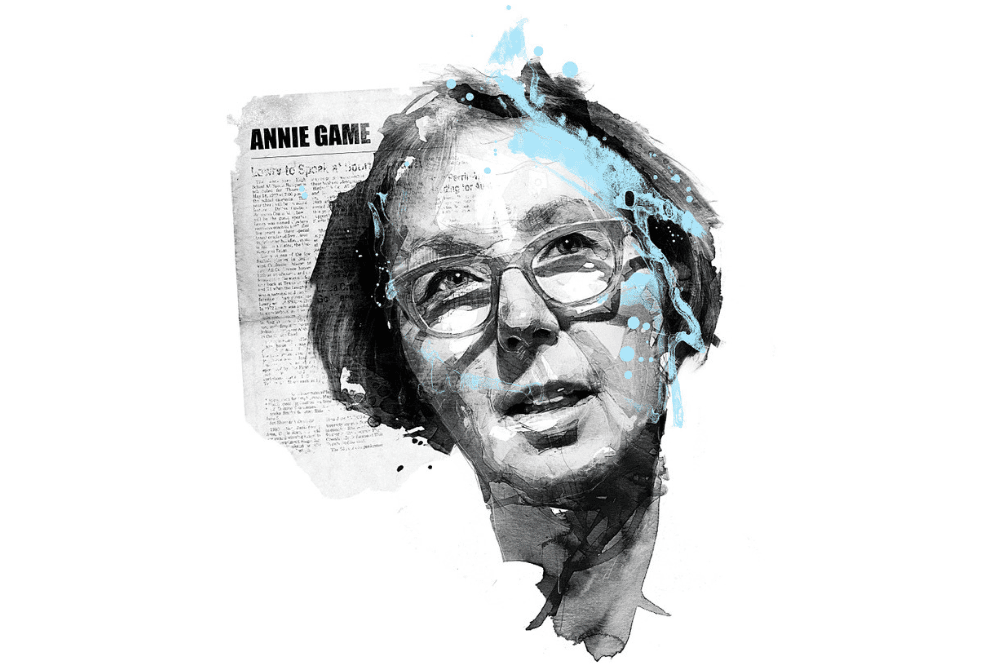He was one of the first people to bring public attention to privacy and surveillance issues in Morocco. His reward? Charges of “threatening the internal security of the State”.
In a video interview with Privacy International in June 2014, Hisham Almiraat spoke about what privacy means to him. You can't innovate, you can't emancipate while knowing that someone is looking over your shoulder.
Hisham Almiraat, a medical doctor by trade, started blogging in 2007. An avid believer of the power of the Internet to transform the world around him, he joined Global Voices, an international community of bloggers, citizen journalists and translators from 167 countries, where contributors report on stories from their own country.
When Arab Spring protests in 2011 started to spread from Tunisia to neighbouring Morocco, Almiraat was living and studying in Rouen, France. Disappointed by local media outlets’ lack of coverage of and international media outlets’ lack of interest in a grassroots, youth-driven movement calling for reform in the kingdom, he decided to take matters into his own hands. Along with a group of like-minded Moroccan expats and with three years of citizen journalism experience under his belt, Almiraat launched Mamfakinch.
Moroccan Arabic for “We won’t give up”, Mamfakinch was a citizen media platform dedicated to giving a voice to activists on the ground in as many of Morocco’s cities and villages as possible. The website very quickly became the go-to-resource for news on the mass protests sweeping the country, and the name later became a street mantra.
In the summer of 2012, shortly after winning the Google Breaking Borders Award, all fifteen members of Mamkafinch‘s editorial team were targeted with a sophisticated spyware that allows the attacker to gain complete remote access to the targets’ computers. Shaken by such an intrusive attack, volunteers gradually dropped out of the project, and by early 2014 the platform had become inactive.
Almiraat, who at that point was also serving as Global Voices’ Advocacy Director, then founded the Moroccan Digital Rights Association (ADN), an organisation focused on issues of privacy and surveillance in Morocco, and went straight to work.
In March 2015, in partnership with IFEX member Privacy International, one of the first organisations to campaign at an international level on privacy issues, ADN released a detailed and eye-opening report on the methods of surveillance used by the authorities in Morocco.
So explosive was the report, the Ministry of Interior launched an investigation into an unnamed “group behind a report that allegedly accuses the intelligence services of spying on rights activists and journalists.” Almiraat believes that group to be ADN.
In May of that same year, the authorities sought to prevent a press conference organised by ADN to present the report’s findings. A month later, Almiraat again found himself in trouble with authorities when police interrupted a four-day training session organised by the Dutch nongovernmental group Free Press Unlimited (FPU). Almiraat and others were questioned about the program and their relationship to FPU.
As of November 2015, Almiraat has been subjected to a new struggle – one with serious personal consequences. Along with seven other civil society advocates, journalists and human rights defenders, Almiraat was charged with “threatening the internal security of the State” and put on trial on 27 January 2016. Two other individuals face fines for “receiving foreign funding without notifying the General Secretariat of the government”.
The defendants believe they are being targeted for participating in the June 2015 workshop conducted by FPU. An international appeal signed by 19 press freedom and civil society groups has called on the authorities to drop the charges and end the harassment of all human rights activists and journalists in Morocco. The hashtag #Justice4Morocco has since been used to campaign on behalf of the defendants.
As of 27 January 2020, the trial has been postponed 18 times, according to Kamel Labidi, director of IFEX member Association Vigilance for Democracy and the Civic State. The next court hearing is scheduled for 27 May 2020.
With freedom of expression and independent journalism in Morocco continuing to regress in recent years, the trial is widely viewed as politically motivated with the aim of silencing the critical defendants through judicial harassment. According to prominent Moroccan journalist and one of the defendants Hicham Mansouri, the continued postponements indicate the lack of a substantive case and is a technique widely used by the regime to exhaust and terrorize critics.
Illustration by Florian Nicolle




